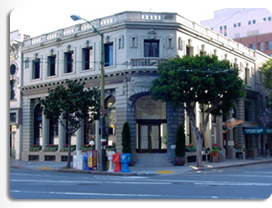Overtime, Meal & Rest Law
San Francisco Employment Lawyers
California and federal law regulate the way employers pay overtime, provide meal and rest times, and what rights you have during each work day. California and federal law each provide employees with various legal rights. Our experienced employment law lawyers can help employees determine whether they have a legal right to recovery, when they believe an employer has treated them unfairly.
California Overtime Rules
California law mandates overtime pay for work over eight hours per workday or forty hours per workweek. Overtime pay may be one and one-half or double an employee’s regular rate of pay, depending upon the number of overtime hours worked.
Rate of Pay
Your “Rate of Pay” is your pay for the work you perform. It may be hourly, salary, piecework, or commissions. If your employer pays you a salary, your rate of pay is determined using the following procedure:
- Multiplying your monthly pay by 12 is your annual salary
- Dividing your annual salary by 52 is your weekly salary
- Dividing your weekly salary by 40 is your rate of pay
You are entitled to one and one-half your rate of pay for those hours worked when you work:
- More than 8 hours, up to and including 12 hours in a workday
- More than 6 days in a workweek
- First 8 hours worked on the seventh consecutive day in a workweek
You are entitled to double your rate of pay for:
- Hours worked beyond 12 hours in a workday
- Hours worked beyond 8 hours on the seventh consecutive day in a workweek
Meal Period
An employee must have a minimum thirty-minute meal period prior to completing five hours of work. If the workday is less than six hours, the meal period may be waived by mutual consent. If the workday is longer than ten hours, a second meal period must be provided, unless the workday is less than twelve hours and the first meal period was not waived. If an employee is not permitted to leave the employer’s premises and not relieved of his or her duties, the meal period is considered on duty and must be paid at the employee’s pay rate.
Rest Periods
Employees who qualify receive a ten-minute rest period every four hours worked. If an employee is not given the rest period, an employer must pay the employee one hour of wages for each workday the rest period is not provided.
Choosing to work during your rest period does not entitle you to leave early or arrive late.
Using the toilet does not count towards your 10-minute break. You cannot have additional breaks if you are a smoker. Your employer can require you stay on the premise because you are being paid during your rest period.
California Employment Attorneys
If you believe you have suffered an Overtime, Rest or Meal violation in San Francisco, or elsewhere in California, you may be able to obtain compensation and seek justice for the wrongs you have suffered. An experienced employment law attorney can best investigate all the facts, including the employer’s personnel practices, to determine whether California or federal laws have been violated.


